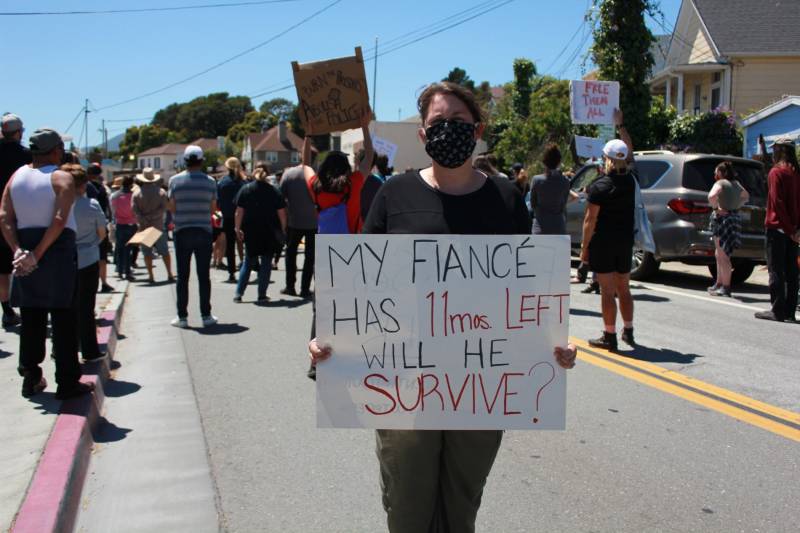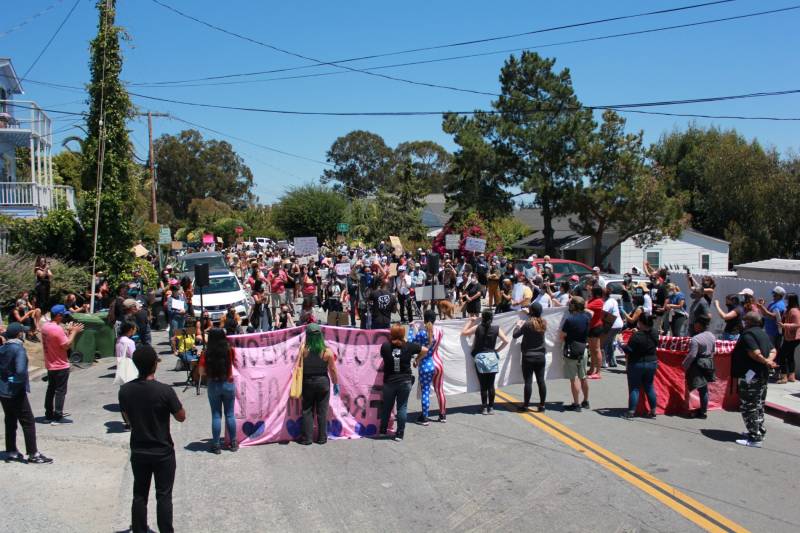A COVID-19 outbreak at San Quentin State Prison reached 800 positive cases as of Sunday, rippling fear through the loved ones of those incarcerated there.
Hoping to save lives, more than 150 protestors gathered at the entrance of San Quentin state prison Sunday and called for the California Department of Corrections and Rehabilitation to transfer inmates to non-prison facilities.
“When it comes to my son, the one that I gave birth to and carried for nine months, they don’t have the right to take his life,” said Shawanda Scott, whose 34-year-old son, Carrington Russelle, is serving a 12-year term.
Scott said, “I’m demanding that they’re freed and able to come home to their loved ones, and be tested. I’m demanding that there’s no more transfers of loved ones that can cause more COVID to go rampant.”


